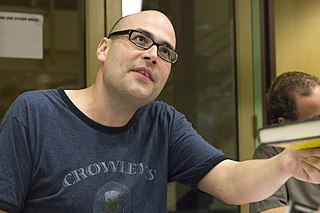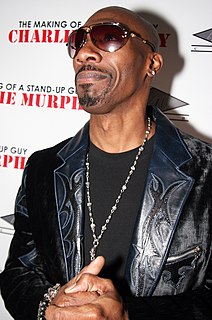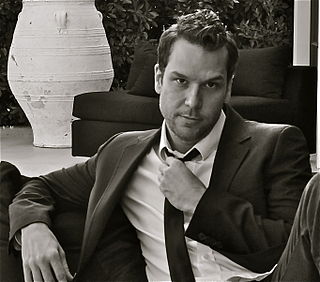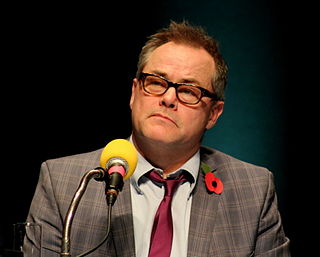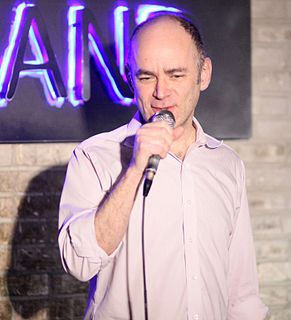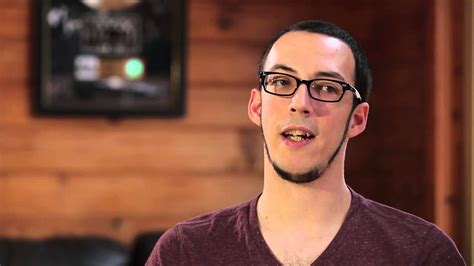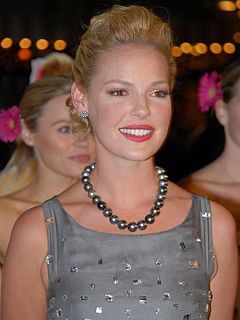A Quote by Nathan Rabin
Phunny Business is a breezy, vivid, funny, star-studded and delightful valentine to comedy, entrepreneurship and the All-American impulse to make something out of nothing. The story of comedy club owner/inveterate dreamer Raymond Lambert and his heroic quest to create a safe, productive place for black stand-up comedians to hone their craft and find their voices isn't just a great Chicago story and a great comedy story: it's a flat-out great story, lovingly and engagingly told.
Quote Topics
All-American
American
Black
Breezy
Business
Chicago
Club
Comedians
Comedy
Comedy Club
Craft
Create
Delightful
Dreamer
Entrepreneurship
Find
Flat
Funny
Great
Great Comedy
Heroic
His
Hone
Impulse
Just
Make
Nothing
Out
Owner
Place
Productive
Quest
Raymond
Safe
Something
Stand
Star
Story
Up
Valentine
Vivid
Voices
Related Quotes
So often with beginning writers, the story that they want to start with is the most important story of their life - my molestation, my this, my horrible drug addiction - they want to tell that most important story, and they don't have the skills to tell it yet, so it ends up becoming a comedy. A powerful story told poorly becomes funny, it just makes people laugh behind their hands.
If you're gonna tell a story from beginning to end, I always think you have to have a great structure in a script. If it gets you excited and it's something you've never read before that's another plus. I think also with improv and that whole world of stand-up, that's a whole other organism of comedy that still needs a story, but it's more free-form. On the set, it is the combination of both those worlds coming together: a great script and an allowance to play with it.
What I often do in my work is to take a great story, such as the Odyssey, the search for the Grail, the story of Jesus, or the story of the great peacemaker who helped create the Iroquois Confederacy in the 15th century. I then use these tales as templates upon which to weave psychological and spiritual exercises which allow us to open ourselves up to the larger venue of a story.
You have comedians who just do jokes, and they're called comics, not comedians. You have comedians that do bits - a person that has a lot of jokes that have a beginning, a middle and an end, but it's not a real story. And you have someone that does great stories, the one that blends those things together - that person is doing comedy.
Thank God, 50 years ago I learned that our entire business is all based on two things; a great song and a great story. Film, television, if you don't have that story, nothing else matters. You don't call anybody else or direct anybody. The same with a song. A great song can make the worst singer in the world a star.
He did not know that the new life would not be given him for nothing, that he would have to pay dearly for it, that it would cost him great striving, great suffering. But that is the beginning of a new story -- the story of the gradual renewal of a man, the story of his gradual regeneration, of his passing from one world into another, of his initiation into a new unknown life. That might be the subject of a new story, but our present story is ended.
There is a problem in America. An Irish or Polish American can write a story and it's an American story. When a Black American writes a story, it's called a Black story. I take exception to that. Every artist has articulated to his own experience. The problem is that some people do not see Blacks as Americans.
The problem with a lot of comedy clubs is not that they are a comedy club; it's just the cheesy way they're presenting themselves. That's why a lot of people have a problem with them. If you're a relatively unknown comedian, you can play at a comedy club, you might play to hundreds of people every night. But if you try to make a concert event out of it, and try to play a rock club or something, where you might play to 10 people or no people. And the flipside of that is, that's also a great thing, to play to people who are your fans. Some people are too hard on the comedy clubs.
Not only do you need great lyrics, a great message, a great story, great vocals, great chords... you also need great instrumentation, great editing, great sonics, great mixing, and great mastering. It all comes together to make something truly great, and I think each element combines together to create a powerful impact on the consumer.
